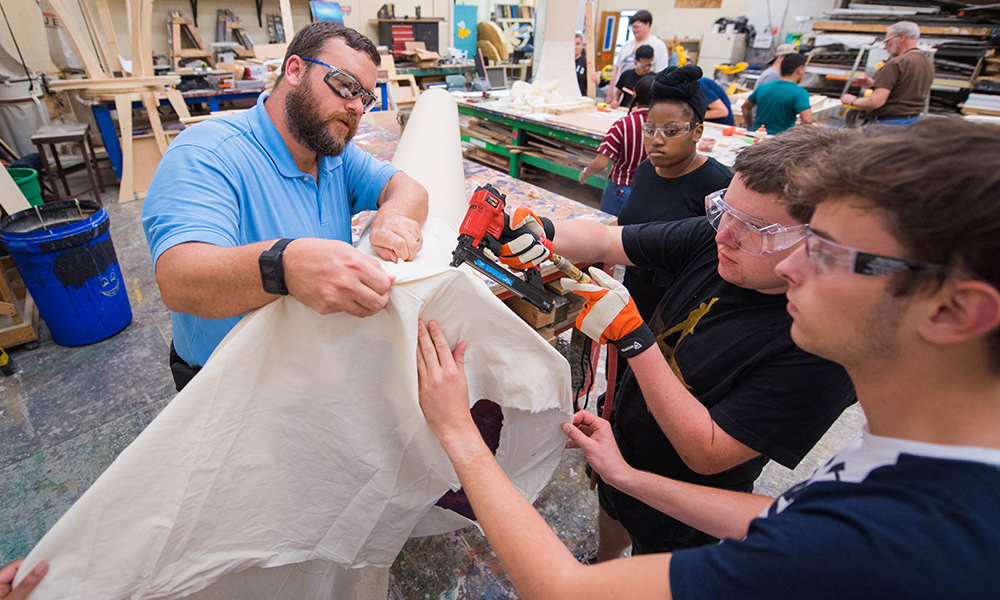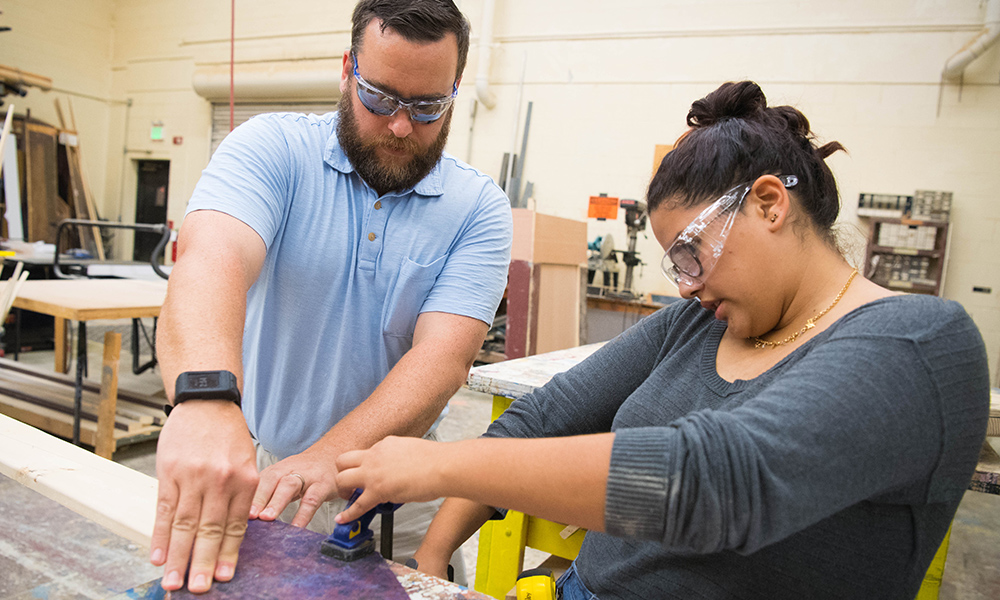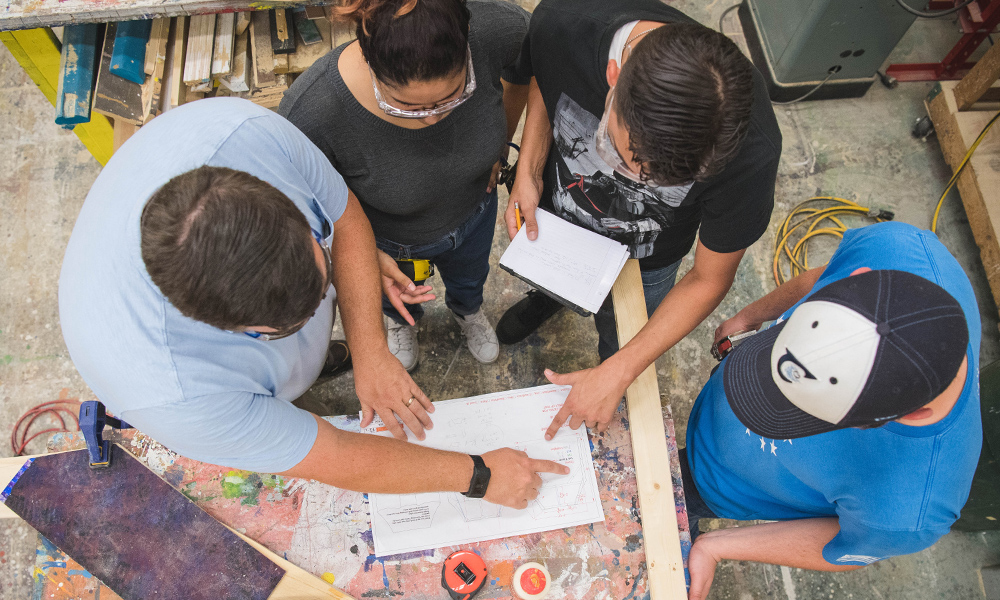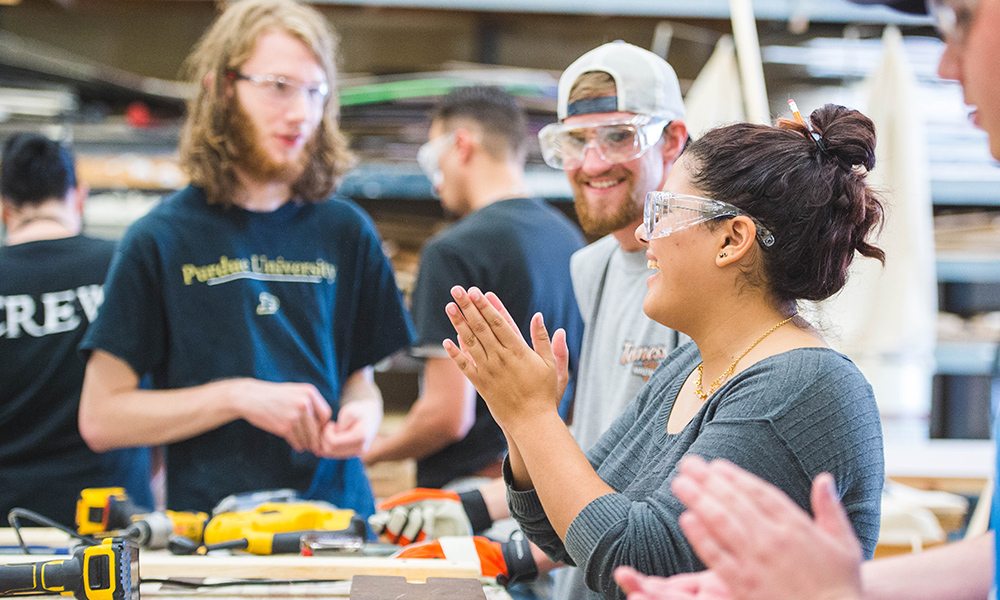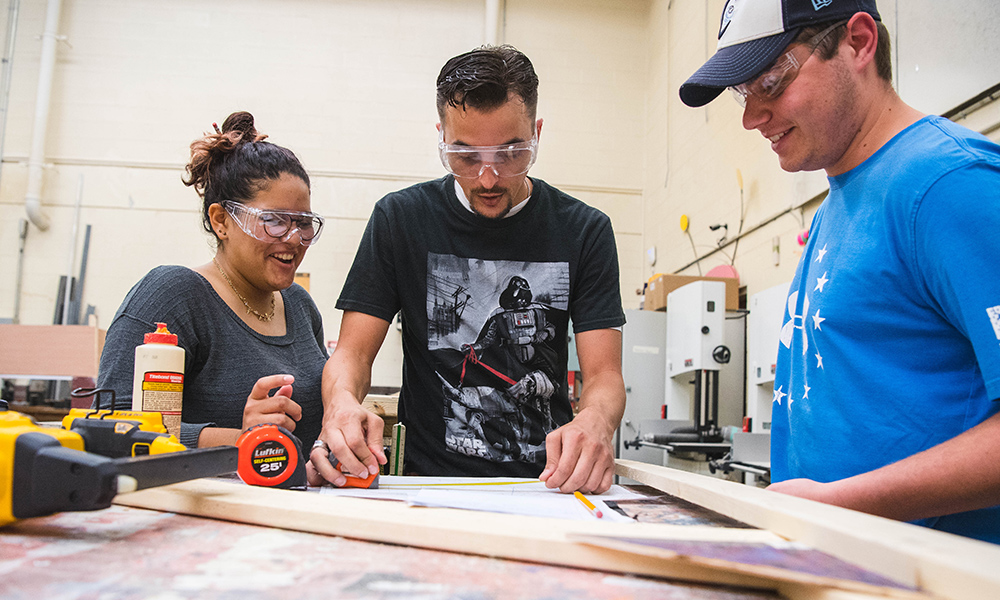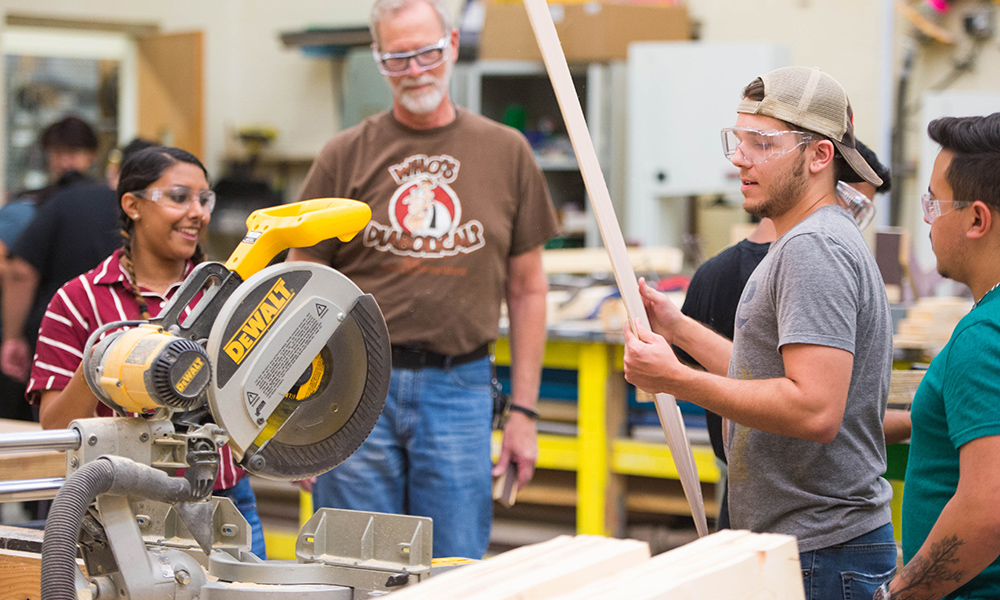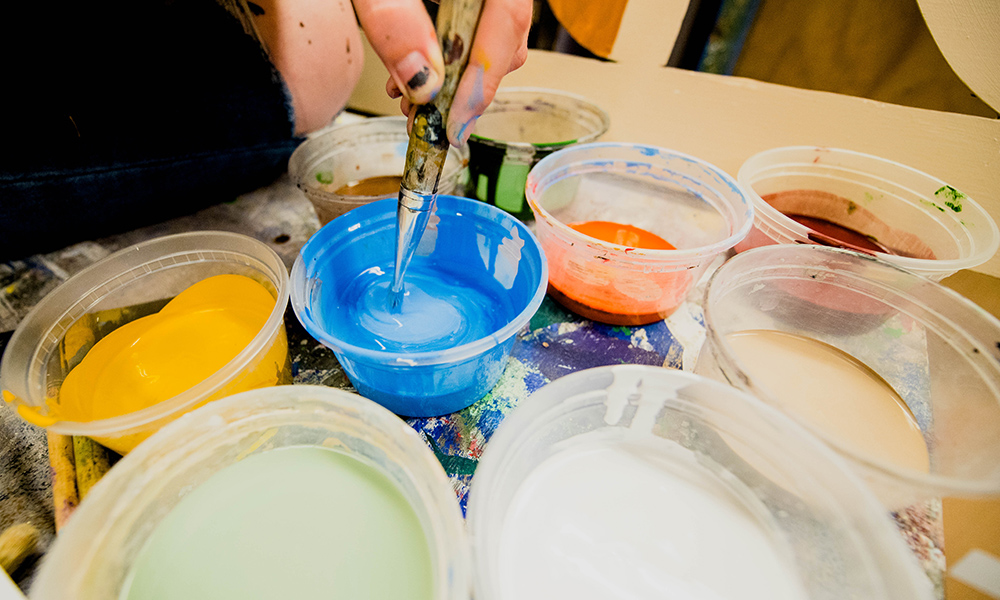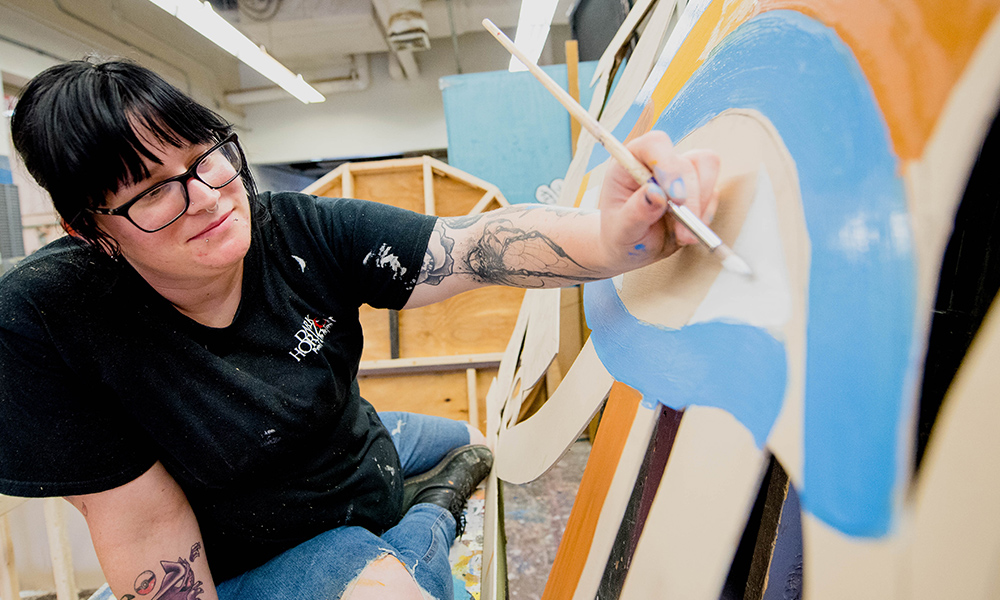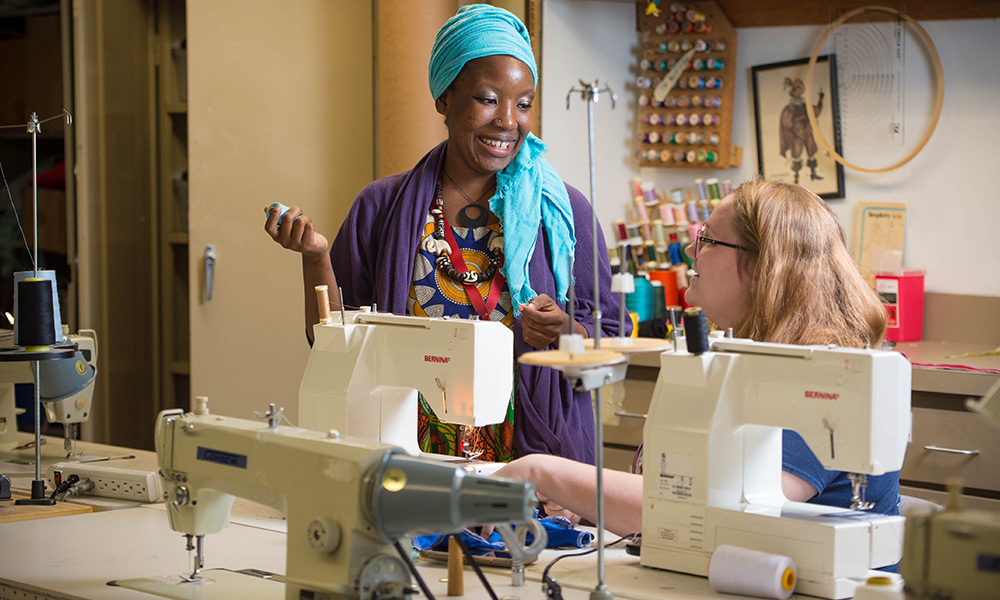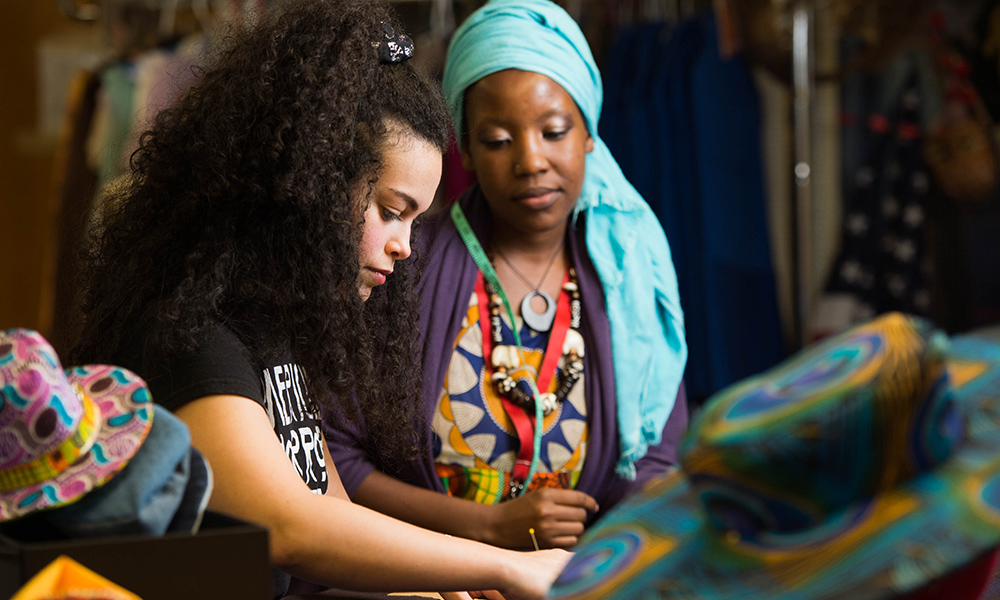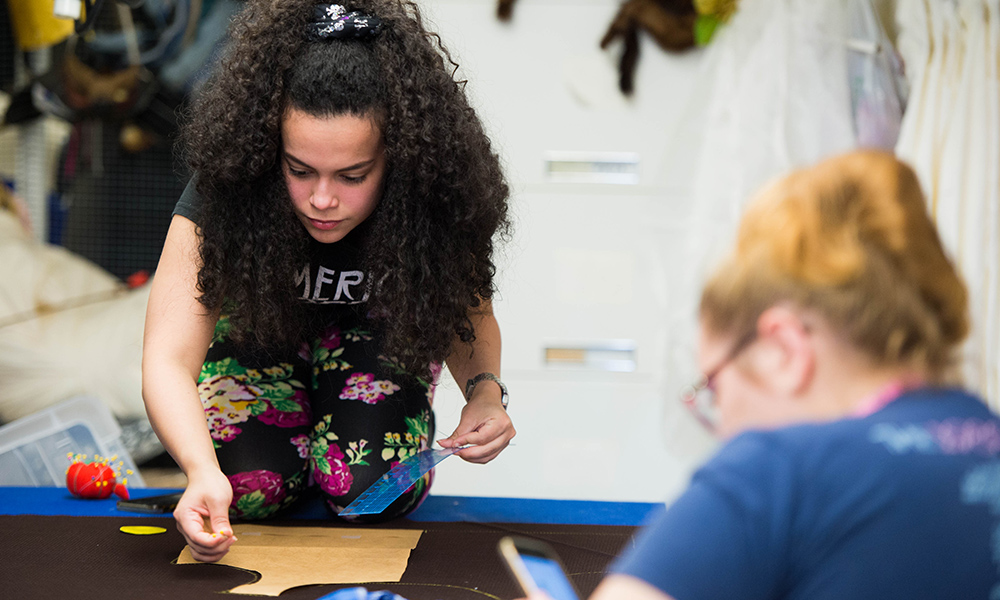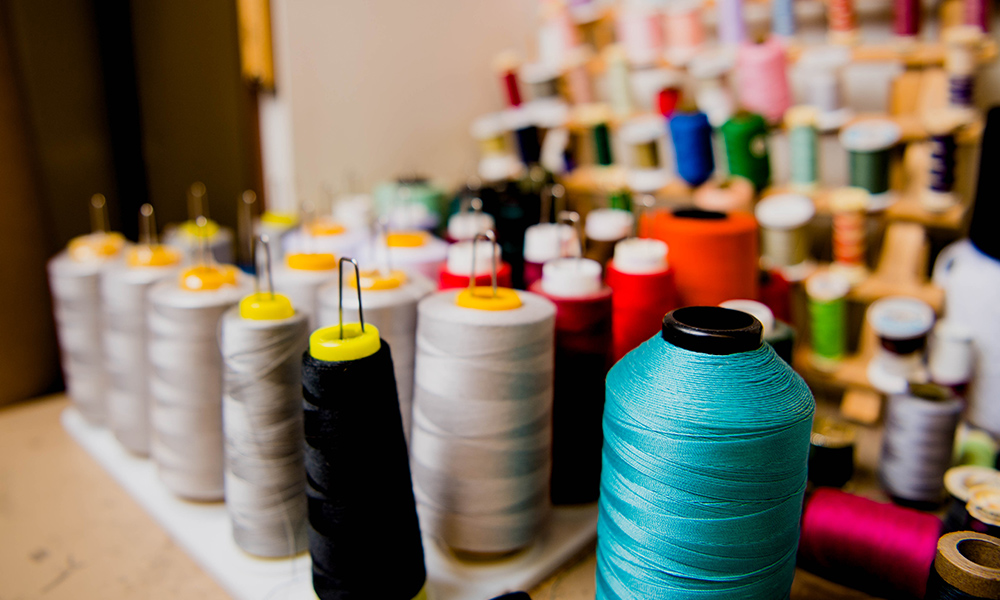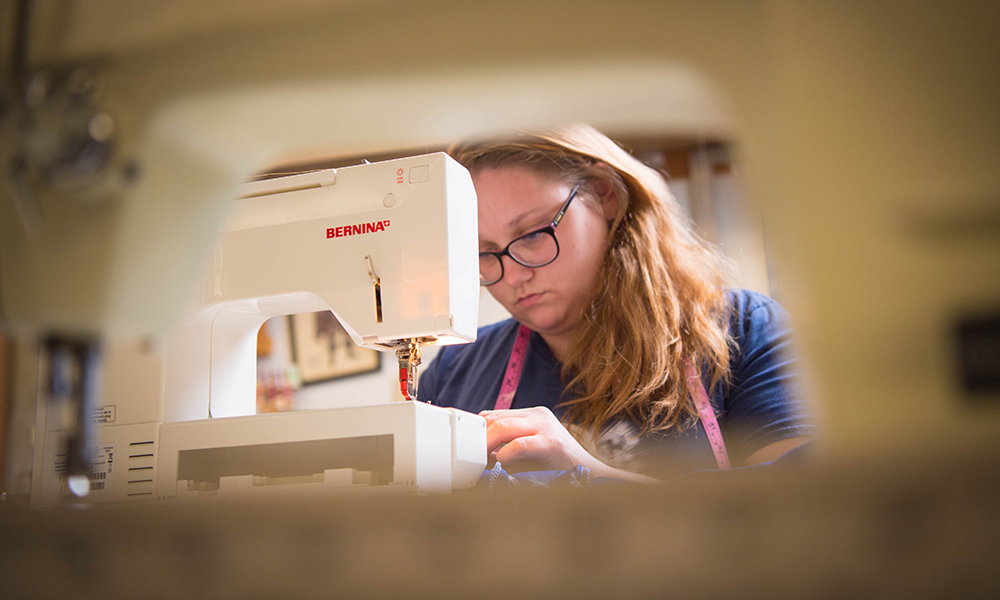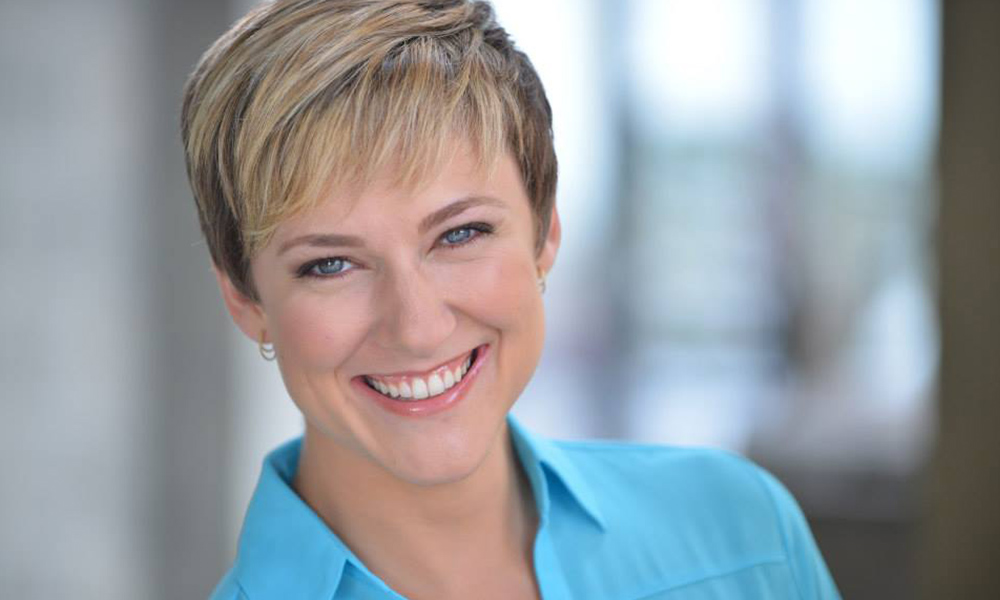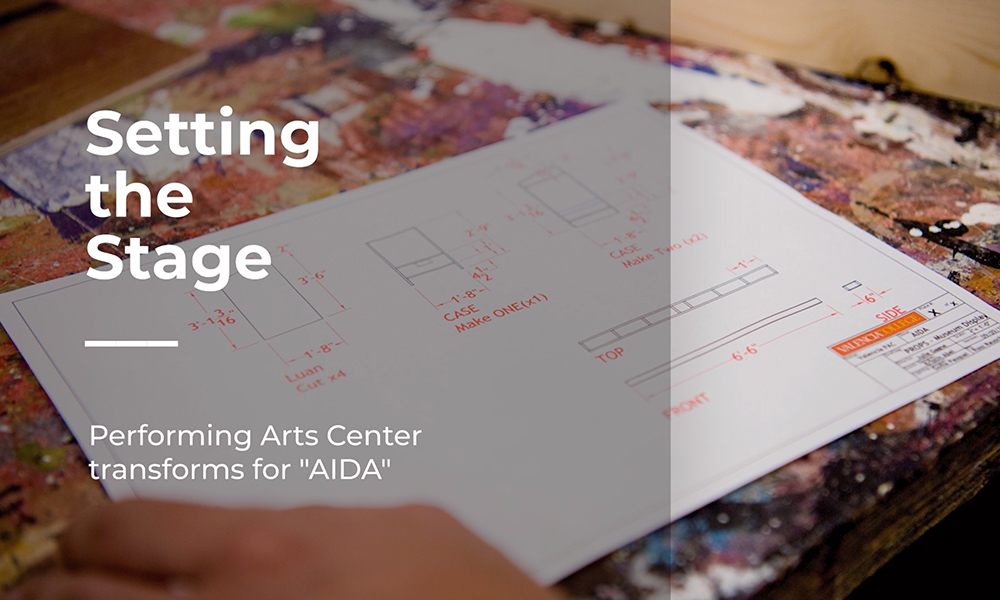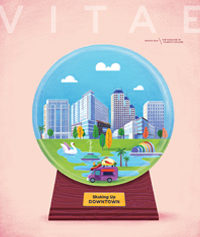//BY MCKENZIE LAKEY
The Performing Arts Center on Valencia College East Campus has been described as a “mixed bag” by those who work in the building. Whether it’s an exhibit in the lobby, an intimate performance in the Black Box Theater, or a foot-stomping musical on the main stage, the variety is endless behind those wide double doors.
We get to dream big and give as much as possible to share a spectacular show with the audience.”
Behind the scenes of the applause, the stage, the perfectly themed costumes and the beautifully designed sets is the team of individuals who keep the stage coming to life each season.
Without a continuous stream of talented individuals who lend their heart and soul to the venue, productions and events at the Performing Arts Center would go unattended—or worse—uncreated.

 One crucial piece of the performing arts puzzle is Ross Rauschkolb, the technical director of the Performing Arts Center and an instructor of technical production.
One crucial piece of the performing arts puzzle is Ross Rauschkolb, the technical director of the Performing Arts Center and an instructor of technical production.
As a technical powerhouse behind productions, Ross works closely with all of the creative minds collaborating on a show to translate their ideas into something that comes to life on stage. Now in his fourth year at Valencia College, he says there is never a dull moment in his job.
“It’s always new and exciting with a new project every six to eight weeks,” Ross says. “We get to dream big and give as much as possible to share a spectacular show with the audience.”
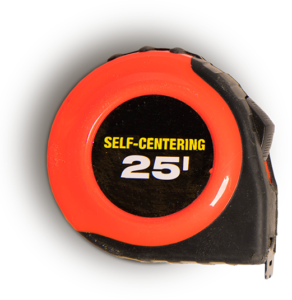
Another important element to Ross’ job is the educational impact he has on Valencia College theater students. Throughout the process of building a show, as many as five to six classes can all be working on building the set. For Ross and other professors in the theater department, that means breaking down the designs and process to help their students build the show (and their portfolios).

“My job is translating arts,” Ross says. “I try to tell my students to think about what they’re building in terms of LEGOs. They are small components that we can use to build something grand.”
We are all collaborators and storytellers”
 This is something he has in common with Constance Lee, a costume designer and part-time entertainment design and technology professor at Valencia College. She also translates stories and helps students bring their passion to life, but through a different medium—fabric.
This is something he has in common with Constance Lee, a costume designer and part-time entertainment design and technology professor at Valencia College. She also translates stories and helps students bring their passion to life, but through a different medium—fabric.

“We are all collaborators and storytellers,” Constance says. “Everyone attaches emotions to their clothing, and it’s our job to convey the feelings of our characters and the story with the outside world through fabric and costumes.”
As a designer, Constance says she submerges herself into the time period of the show to “get in the groove and feeling of the era” that the show is based in as she sews and creates costume pieces. This means everything from listening to music to watching movies and shows as she seeks inspiration. It also allows her the chance to connect and understand the story of characters she has only been able to meet through a page.

“I make temporary clothes for people living in an imaginary world,” Constance says. “All of the work we do together and the time we place into understanding our characters and their world, only helps us better tell the story and bring it to life.”
While the characters and the worlds that the production teams build may be imaginary, the patrons who attend the shows are very much real. Greeting these patrons with a smile and a wink is Karina Wright, the Box Office manager.
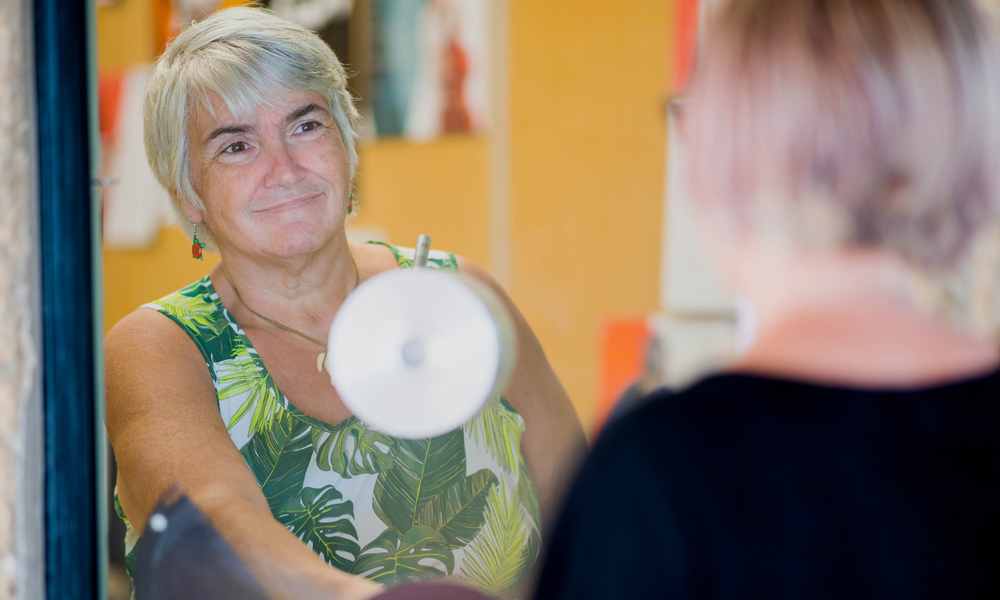
Karina Wright greets a guest at the Box Office, located in the Performing Arts Center.
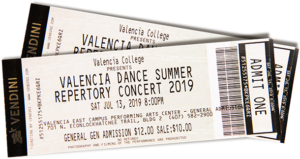 From selling someone their first ticket, to guiding them into the imaginary world they will be living in for the next few hours, Karina’s position allows her to interact one-on-one with every guest coming through the theater.
From selling someone their first ticket, to guiding them into the imaginary world they will be living in for the next few hours, Karina’s position allows her to interact one-on-one with every guest coming through the theater.
“Customer service is the most important part of your day when you’re in the Box Office,” Karina says. “It’s important to make a great first and lasting impression as they come in.”
Although Karina is still relatively new to Valencia College, her experience with theatre spans nearly 45 years. Starting her career as an actress, she has gone on to work in theatre, television and film. Unable to quell her passion for the arts, she’s worked in technical and stage management roles throughout the years.
“I’ve been in the industry for several years now, decades actually, and all of my various jobs in the entertainment industry have really helped lead me to this role,” Karina says.
While being behind the window of the Box Office counter is a new view for Karina, she lights up when she starts to dive into the season and explains the upcoming productions at the Performing Arts Center.
“I’m excited for my first season here,” she says. “I get to continue working in a field I love, while also being someone who is cultivating a passion for the arts in everyone who passes through here. What’s better than that?”
A sentiment that is, no doubt, shared by all of the production and creative teams as they collaborate to bring shows and events to life each season at the Performing Arts Center.
Get to know Rebekah Lane, the new director of the School of Arts and Entertainment
When did you start at Valencia College?
I started as the director of the School of Arts and Entertainment in mid-August, but I first started working here in 2011. I had just graduated with a master’s in communication, so I was teaching speech classes.
What are your duties and responsibilities as the director of School of Arts and Entertainment?
Well, it’s a brand new position, so I’m learning a lot—especially when it comes to the culture of our different departments and within that, the culture of each campus.
A priority for me is to begin cultivating relationships and laying the groundwork to have a conversation that focuses on how we can celebrate each campus. Just because [East Campus] is considered the high density arts campus, it doesn’t mean that these things aren’t happening across the college and aren’t part of the School of Arts and Entertainment. So how do we support and celebrate them?
Another part of this job includes going through the discovery process of finding out what the needs are across campuses and then finding out how we can meet those needs.
What role does Valencia College play in the Orlando arts community?
I would love to see Valencia College be considered an arts hub for the community, and I think that means different things for each of the departments here. It’s lovely to have the resources of a school, but the goal is to be able to have your pulse on the community, and Orlando is really fertile for growth right now.
The faculty and the staff here at Valencia College are truly awesome. We have people who have done really cool national and international work. They’re deeply involved in the community, so finding a way to share the work they’re doing and keep that conversation going with the community is a priority.
What’s your vision for the future of the arts and entertainment programs?
This is pie in the sky and dreaming big, but I’d love for us to have a voice in the national and international conversation within the arts. Orlando’s growing enough that I think we can, so let’s be a part of that growth. I think it’s important for students to be exposed to the national conversation.
How can we support our students in joining that community and give them opportunities to work on a national level—but then come home and bring their experience back to Orlando?
I moved here in 2000 and I left and went to Baltimore for grad school, but I did come back. I think everything that I took to Baltimore made Baltimore richer, and I think that everything that I brought back from Baltimore makes Orlando richer. So how do we create that cross pollination for our students?
Can you give us a glimpse into any upcoming exciting projects?
One of our initiatives right now for the School of Arts and Entertainment is Spring Arts Week, which will be March 2–6. This year it’ll be the second annual Spring Arts Week and its goal is to create arts saturation across all campuses. We’re involving as many arts faculty and students who are interested in participating and also reaching out to clubs across campuses.
The focus of the event is on students and student art, so I think there are opportunities for classes to do things outside, like having the art students take their easels outside for a class and just create a presence. But it’ll also include things like flash mobs, galleries and labyrinths that people can walk through.

